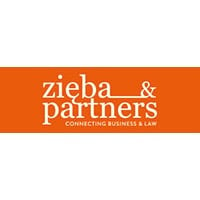

Head of legal department and commercial proxy | METRO PROPERTIES




Marcin Dąbrowski
Head of legal department and commercial proxy | METRO PROPERTIES
Strategy development, implementation, organisation and management of the Praktiker Polska debtor eviction project. This involved restructuring and conducting commercial activity in nine shopping centres. The debtor’s activity was carried out on a total area of approximately 90,000 square metres. After the eviction proceedings were completed, the project also included emptying nine DIY stores from goods left by the debtor (approximately five million items). Finally, the process included re-commercialisation of all nine stores to another lessee based on multilateral long-term leases agreements.
Preparation and implementation of the construction process of a DIY store according to BtS standard, together with the conclusion of a long-term lease of the store, followed by the sale of the completed investment.
Restructuring of a high-value real estate investment fund portfolio, by transferring all assets to previously bought and suited SPVs together with preparation, both assets and SPVs, to share and asset deals as well as to SLB transaction.
The personal attributes of in-house lawyers are very important. The most important is ability to learn and adjust (or adapt) to the business environment once it changes during the negotiation process.
The ability to look at the issue from a broad perspective and the ability to provide services not only securing the client, but in particular with understanding business concepts and then proposing solutions to achieve business goals. Stress resistance and a sense of humour are also welcome.
A lawyer cannot be a deal breaker. While provide ongoing legal services bear in mind that our task as lawyers is to help business to grow. Hence it is essential to get acquainted with the specifics of the client you will work for and learn how the client exactly conducts business in order to help in creating this business through legal advice.
A law firm should present detailed knowledge of the business that the company operates, not only by providing good portfolio of cases. Personal meeting is a must. It is also important that person responsible for legal services is responsive and available on a short notice.
FOCUS ON… PROFESSIONALISM
Professionals are needed.
The market of legal services is subject to constant changes. The evolution of this services segment results from changes in the way a business activity is conducted and different types of businesses in the age of globalisation and the so-called fourth industrial revolution, i.e. the period in which we use new technologies on a massive scale. Nowadays, changing social realities make it impossible for a lawyer to focus only on dogmatic knowledge of the letter of the law. It has become essential to gain knowledge in the field of economics and finance as well as marketing and management. Only a combination of expertise in all these areas gives the opportunity of in-depth, hence, well-aimed analysis of the client’s needs. By addressing a certain matter in a more comprehensive manner, it is possible to render better legal advice. It would be a cliché to say that the present role of the lawyer, who provides advice to an entrepreneur, is to offer not only legal, but also business and management consulting. It is vital for an in-house counsel to gain knowledge and soft skills.
In order to provide legal advice, the lawyer must know and understand how the client runs their business. In this context, internal knowledge possessed by in-house counsels is very important. A combination of such knowledge with comprehensive knowledge of law allows to efficiently protect the client’s interests and promote their stable development. It also contributes to the increase of efficiency when using the services of external law firms. It is necessary to bear in mind that in the era of specialisation forced by the needs of clients and the legal services market, reliance on direct support of experts in a given field seems to be inevitable. Development of skills and knowledge in other areas is the effect of activities performed by in-house counsels rather than changes on the external legal services market.
Nonetheless, such specialised and – one could say – targeted advisory has one main drawback, namely, it makes the legal advice based on the aforementioned knowledge of the client-specific industry and specificity of their business weaker or even impossible. Therefore, an optimal solution is the collaboration of the external advisor with the in-house counsel, which allows the delivery of specialist legal advice, which is satisfactory to the client. The synergy effect, achieved thanks to an exchange of knowledge, experiences and skills between a lawyer rendering services in a law firm and as an in-house counsel, accelerates and improves the process of providing both types of the aforesaid legal services.
Such collaboration brings benefits to both clients and lawyers who take part in their businesses. The in-house counsels learn from external lawyers and vice versa. In addition, the above-described exchange of experiences and skills is also advantageous for the legal theory and practice, which can develop by making available and analysing certain concepts elaborated by in-house and external counsels. Such combined form of the legal advisory often reveals legal deficiencies and loopholes. Unfortunately, the legislator, who is deaf to dynamically changing needs of the clients and achievements of legal practitioners, rarely benefits from the effects of the aforesaid collaboration.